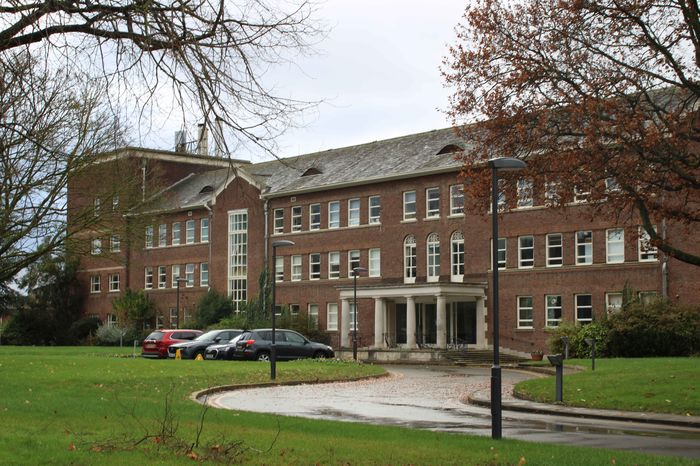Vet students could be sent packing
The course’s accreditation is currently under threat

Cambridge vet students could be transferred to other universities to complete their clinical studies amid concerns that the course may be stripped of its accreditation.
In a letter sent from Academic Secretary Dr Michael Glover to Professor Mark Holmes, Head of the Department of Veterinary Medicine, on November 14, it was revealed that “the current business plan for the delivery of clinical services was not viable and that the recurrent deficit of more than £1M could not be sustained”.
This follows the announcement, made earlier this week, that Cambridge’s Veterinary Medicine (VetMB) course could be stripped of its accreditation.
An interim report from the review group convened in 2023 suggested a “major investment in clinical and teaching facilities” would be needed from the University to develop a sustainable model for veterinary education, but that “the University cannot make that commitment at this time”.
The report suggested that the clinical elements of the VetMB course could be delivered via external partnerships. This would mean that students might be transferred into a different university for the final three years of their degree after receiving their BA from Cambridge as part of “an articulation agreement with another Veterinary School”.
Another suggestion included establishing “partnerships with private sector external clinical service providers” to enable students to complete their clinical training years. However, the general board has not yet been able to assess the viability of these other delivery options for clinical experience.
The letter also stated that “the General Board has given consideration to the possibility of closing the VetMB course to new entrants from 2026”. An email sent to admissions tutors on Monday (25/11), seen by Varsity, also states that “a decision has been taken that no deferred offers should be made for entry in 2026”.
The proposed changes would still “require an extended period of teaching out current students,” during which time the University would remain committed to providing clinical training. However, the letter does acknowledge that this would “clearly be challenging to deliver”.
This comes after Holmes, alongside Prof Jon Simons, the acting Head of Biological Sciences, told The Guardian: “We will do everything we can reasonably do to support students to complete their course and receive full accreditation.”
They said: “The department has been acting on the recommendations since being informed in the summer and this work will now be accelerated.”
The Veterinary School has been asked to provide a response to Dr Glover’s letter in the form of a “‘letter of intent’ for the General Board to consider at its meeting on the 18th of December”.
This letter of intent should “outline a commitment to take forward work to develop an alternative option for clinical course delivery in partnership with one or more other clinical providers, or to indicate that this effort will not be pursued.”
Acknowledging the short time-frame given to respond to the letter, Glover explained that “the Board is anxious to bring clarity to the way forward as soon as possible.” However, on Monday, the Students’ Union president said that improvements to the course are yet to be made because “everything in Cambridge moves at a snail’s pace”.
An email sent to veterinary students on Monday (25/11) revealed that the Royal College of Veterinary Surgeons (RCVS) had graded the course with “conditional accreditation”. Unless the department improves by the RCVS’s next visit in September 2025, it runs the risk of losing its accreditation entirely.
The course failed to meet 50 of the course’s 77 accreditation standards, although the RCVS did note “strong research led and clinical teaching, which we provide to excellent students”.
Holmes told students: “We will do everything which we reasonably can to avoid that eventuality, as well as put appropriate mitigations in place for your education if it did.” He also wrote: “Our immediate concern is for your welfare”.
News of the department’s £1 million deficit comes after the Cambridge’s board of scrutiny projected that the University’s overall deficit for 2023/24 will stand at £53 million. There is “no clear understanding of what has happened or why,” the internal watchdog said.
The report cited evidence of “a lack of budgetary control” at Cambridge, warning that this projected deficit suggested “structural” problems in the University’s finances.
Cambridge has been informed that they must make cuts to spending, with the University telling The Telegraph: “The focus of reducing costs will be on finding efficiencies and reducing duplication across our operations to allow funds to invest to maintain our position as a world leading university.”
A spokesperson for the University of Cambridge told Varsity: “As part of this process of improving standards, the University has also conducted its own review which explores all viable options. The Department is developing a strategy for implementing the changes needed.”
 Comment / Cambridge’s tourism risks commodifying students18 April 2025
Comment / Cambridge’s tourism risks commodifying students18 April 2025 News / Cambridge student numbers fall amid nationwide decline14 April 2025
News / Cambridge student numbers fall amid nationwide decline14 April 2025 News / Greenwich House occupiers miss deadline to respond to University legal action15 April 2025
News / Greenwich House occupiers miss deadline to respond to University legal action15 April 2025 Comment / The Cambridge workload prioritises quantity over quality 16 April 2025
Comment / The Cambridge workload prioritises quantity over quality 16 April 2025 News / Varsity ChatGPT survey17 April 2025
News / Varsity ChatGPT survey17 April 2025




